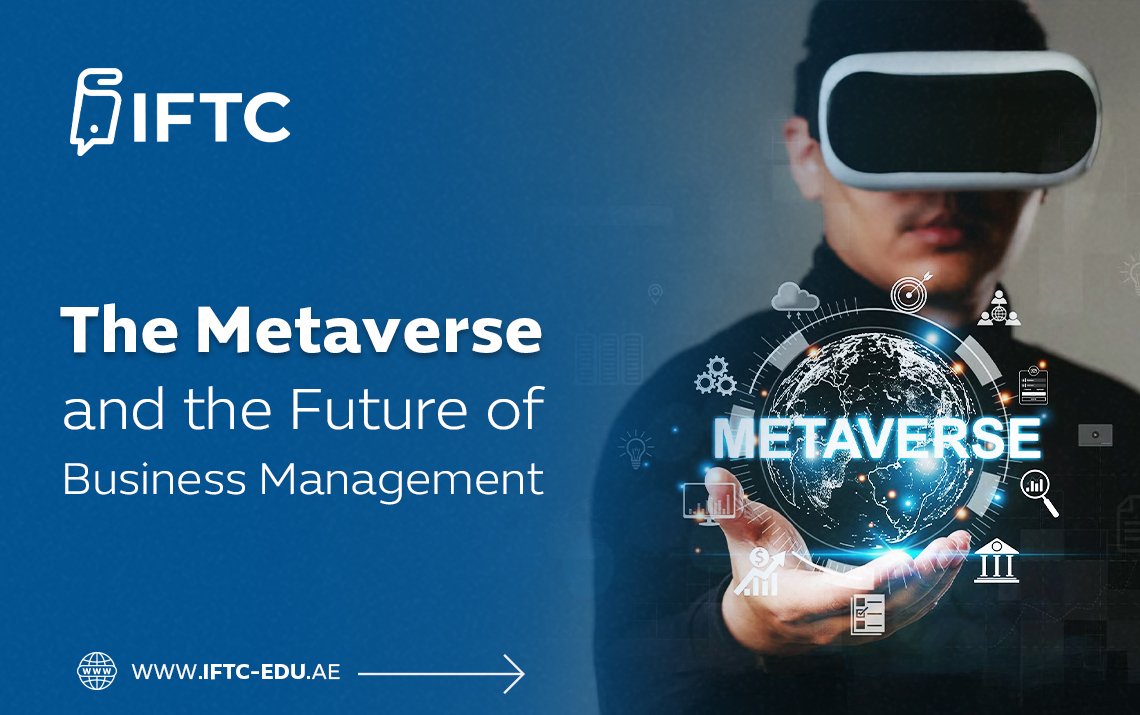
The Metaverse and the Future of Business Management
Introduction: A New Digital Frontier
Only a decade ago, the “metaverse” sounded like science fiction — a virtual universe where people could live, work, learn, and trade through digital avatars. Yet by the 2030s, immersive technologies such as virtual reality (VR), augmented reality (AR), mixed reality (MR), and blockchain-based digital assets have evolved from gaming curiosities into serious business platforms.
Major corporations, universities, and governments are building virtual campuses, stores, and collaboration spaces. Analysts forecast that the global metaverse economy could exceed $5 trillion by 2030, rivaling the size of the current internet economy.
For business leaders, the metaverse is not merely a technological novelty — it is a strategic shift in how organizations create value, manage talent, and engage customers. This article explores what the metaverse is, how it reshapes management, and how leaders can navigate its challenges responsibly.
1. Understanding the Metaverse
The metaverse can be described as an interconnected network of persistent, immersive virtual environments where users interact through digital identities and transact via decentralized economies.
Core enablers include:
- Immersive hardware: VR headsets, AR glasses, haptic sensors.
- Software platforms: Spatial computing environments (Horizon Worlds, Decentraland, Roblox).
- Blockchain & Web 3.0: Non-fungible tokens (NFTs) and smart contracts enable digital ownership.
- AI & Cloud: Power realistic avatars and adaptive virtual spaces.
In essence, the metaverse is the next generation of the internet — embodied, experiential, and persistent.
2. Why the Metaverse Matters for Business Management
New Modes of Collaboration
Remote work has already normalized digital teamwork; the metaverse elevates this to presence-based collaboration.
- Teams meet as avatars in shared 3-D offices.
- Body language and spatial interaction improve engagement and creativity.
- Example: Accenture built a virtual “Nth Floor” onboarding campus hosting 150 000 employees worldwide.
Customer Engagement and Experience
Virtual showrooms, immersive advertising, and branded digital goods enable richer storytelling.
- Nike’s “Nikeland” in Roblox lets users experience the brand through gamified interaction.
- Luxury houses like Gucci and Balenciaga sell virtual fashion, blending identity and commerce.
Talent Acquisition and Training
The metaverse provides realistic simulations for complex tasks:
- Boeing trains engineers in virtual aircraft assembly.
- Hospitals use VR for surgical practice.
These experiences reduce cost, risk, and learning time.
New Business Models
- Virtual-to-physical commerce: Customers design digital twins of products before manufacturing.
- Subscription ecosystems: Companies monetize access to experiences rather than ownership.
- Tokenized economies: Blockchain enables secure micro-transactions across virtual worlds.
3. Strategic Implications for Managers
- Leadership in Immersive Environments
Managers must learn to lead teams whose members may never meet physically, fostering trust through digital empathy and presence. - Organizational Design
Virtual operations blur departmental boundaries. Agile, project-based structures thrive. - Brand Management
The metaverse merges marketing, customer service, and community building into a single interactive ecosystem. - Innovation and R&D
Digital twins allow rapid prototyping and scenario testing before physical rollout.
4. The Metaverse Workplace: From Zoom to Z-Space
The pandemic accelerated acceptance of remote work, but video calls lack emotional richness. In the metaverse:
- Employees interact through lifelike avatars.
- Workspaces mimic physical offices or fantastical designs promoting creativity.
- Cross-cultural teams collaborate seamlessly across time zones.
Psychological research from Stanford’s Virtual Human Interaction Lab shows immersive meetings improve engagement and memory retention by 25–30 % compared with traditional video conferencing.
However, leaders must manage digital fatigue and ensure inclusivity for employees lacking advanced equipment.
5. Case Studies of Early Adopters
- Accenture: Created a “Metaverse Continuum Business Group” advising clients on virtual transformation; uses metaverse onboarding to instill company culture.
- Walmart: Piloting virtual retail experiences and staff training modules.
- Hyundai: Launched “Hyundai Mobility Adventure” to engage future customers with brand ecosystems.
- UAE Government: Exploring “MetaDubai” initiatives for digital tourism and e-government services.
6. Opportunities for Business Leaders
- Renewable Energy Systems — solar, wind, hydrogen, and geothermal power.
- Smart Grids and Energy Storage — balancing supply and demand efficiently.
- Artificial Intelligence and IoT — optimizing energy use and predicting maintenance needs.
- Blockchain — ensuring traceability in carbon credits and supply chains.
- Green Materials — bioplastics, carbon-neutral cement, and sustainable textiles.
Opportunity | Description | Example |
|---|---|---|
Brand Immersion | Create experiences, not ads | Adidas NFT drops with digital sneakers |
Virtual Learning | Lifelong training in VR classrooms | PwC’s VR leadership training yielded 275 % ROI |
Sustainability | Reduce travel & carbon footprints | Virtual conferences replacing flights |
Data Insight | Collect behavioral analytics from immersive interactions | Retailers tracking avatar movement to improve store design |
Global Case7. Risks and Challenges Studies
Data Privacy and Security
VR/AR devices collect biometric and emotional data — highly sensitive information requiring strict governance.
Digital Divide
High hardware costs could exclude developing regions and lower-income employees.
Mental Health Concerns
Extended immersion may blur reality boundaries or cause sensory fatigue.
Intellectual Property and Legal Uncertainty
Ownership of virtual assets, taxation of digital transactions, and cross-jurisdictional disputes remain ambiguous.
Environmental Impact of Technology
Ironically, powering massive virtual worlds demands data-center energy; sustainability must remain integral.
8. Leadership Mindset for the Metaverse Era
- Digital Curiosity – Continually explore emerging platforms and user behaviors.
- Ethical Foresight – Balance innovation with data ethics and well-being.
- Agility and Learning Orientation – Encourage experimentation; accept fast failure.
- Inclusivity – Ensure diverse representation in avatar design, language, and access.
- Strategic Vision – Integrate the metaverse into broader digital-transformation roadmaps, not as a gimmick.
9. The Metaverse Economy and Corporate Strategy
By 2035, expect convergence of AI, IoT, blockchain, and metaverse platforms into a single intelligent ecosystem.
- Operate hybrid physical-virtual supply chains.
- Maintain digital twins of factories and cities.
- Employ AI agents as autonomous coworkers inside metaverse spaces.
- Monetize digital experiences as core revenue streams.
Consultancies such as McKinsey and Deloitte already estimate that early movers in immersive business could realize 20 % higher innovation rates and 30 % faster product cycles.
10. Ethical and Governance Imperatives
To ensure trust, organizations must:
- Adopt transparent data-use policies.
- Create metaverse governance boards overseeing privacy, inclusion, and psychological safety.
- Collaborate with policymakers on global standards for digital identity and property rights.
The concept of “responsible immersion” will become as central as cybersecurity is today.
11. The Future Outlook: Management Beyond Reality
The coming decade will witness three stages of metaverse maturity:
- Exploration (2024-2027): Experimental pilots in HR, marketing, and education.
- Integration (2028-2031): Seamless blending of metaverse operations with enterprise systems (ERP, CRM).
- Normalization (2032 onwards): “Metaverse-native” organizations where virtual collaboration, AI coworkers, and decentralized governance are everyday reality.
Management education will follow suit — MBAs will teach spatial leadership, avatar negotiation, and digital-ethics strategy.
Conclusion: Leadership in the Age of Immersion
The metaverse represents the next frontier of digital transformation — a convergence of technology, creativity, and human connection.
For leaders, success will hinge not on mastering code, but on mastering context: understanding how immersive technologies reshape behavior, motivation, and culture.
The organizations that thrive will treat the metaverse not as an escape from reality, but as an extension of it — a space to innovate responsibly, collaborate inclusively, and create sustainable value for a connected world.
In the future of business management, the boundary between virtual and real leadership will disappear — leaving only authentic human purpose amplified by technology.



